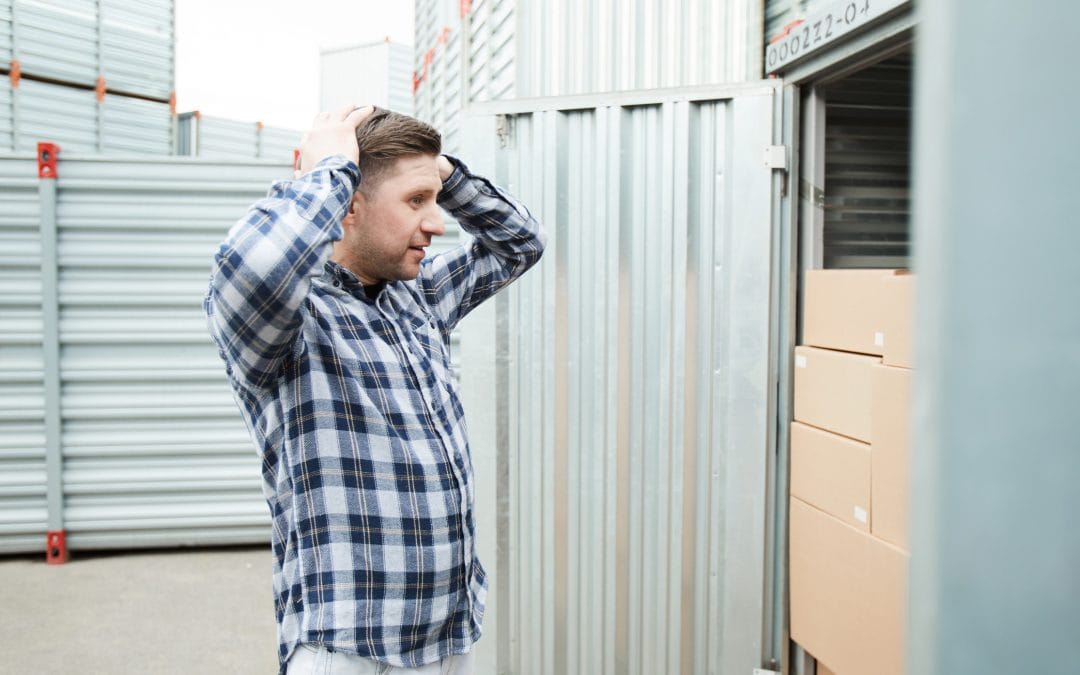Storage units are incredibly useful—whether you’re downsizing, moving, or just need a place to stash extra stuff. But before you start loading up boxes, you need to know what not to store in a storage unit. Not everything is fair game, and some items can actually cause damage, attract pests, or get you in serious trouble.
Most storage facilities have rules for a reason. Some things are illegal, others are unsafe, and a few just don’t do well in storage. So let’s walk through the biggest no-nos and explain why you should keep them out of your unit.
Why Rules Matter: It’s Not Just About Safety
You might think, “If it fits, I’ll store it.” But that mindset can backfire. Storing the wrong items can result in:
- Property damage (to your stuff and others’)
- Fines or eviction from the storage facility
- Loss of insurance coverage
- Health or fire hazards
So knowing what not to store in a storage unit isn’t just about following rules—it’s about protecting your stuff, your wallet, and your peace of mind.
Perishable Food and Drinks
Why it’s a problem:
Any type of food—fresh, frozen, canned, or even dry goods—doesn’t belong in a storage unit. It may seem harmless, but it can spoil, leak, attract bugs, or even bring in rodents. Once pests move in, they can destroy your entire unit and spread to others nearby.
Even pet food counts here. Yes, even the sealed bags.
Instead:
If you need temporary food storage, use climate-controlled areas at home or commercial kitchen facilities.
Anything Living (Yes, People or Pets Too)
This might sound obvious, but sadly, it needs to be said. You cannot live in a storage unit, nor can you keep pets, plants, or any other living creature inside. The conditions aren’t safe—there’s no proper ventilation, light, or emergency access.
Why it’s on the list of what not to store in a storage unit:
- It’s illegal
- It’s dangerous
- It’s inhumane
- You could face serious legal consequences
If you need space for a pet or plant collection, storage units are not the answer.
Hazardous Materials and Chemicals
This one’s non-negotiable. Do not store anything flammable, explosive, toxic, or corrosive. This includes:
- Propane tanks
- Gasoline
- Fireworks
- Paints and solvents
- Fertilizers
- Cleaning agents
- Batteries (especially car or lithium batteries)
Why:
These materials can leak, catch fire, or cause chemical reactions that put the entire facility at risk.
Store instead:
Check with local hazardous waste centers or approved chemical storage providers.
Wet or Damp Items
Moisture is the enemy in any storage unit, even if it’s climate-controlled. Wet clothes, towels, or gear will grow mold and mildew fast. That mold doesn’t just ruin your stuff—it can spread and affect nearby units.
Why this counts as what not to store in a storage unit:
- Causes health issues
- Attracts pests
- Destroys fabrics, papers, and electronics
- Smells awful
Always dry items completely before packing them up.
Uninsured Valuables or Irreplaceable Items
Yes, you can store valuables, but the real question is—should you? If something is truly irreplaceable (like family heirlooms, original artwork, or legal documents), think twice. Theft and disasters are rare, but not impossible.
Why you might regret it:
- Storage unit insurance may not fully cover high-value items
- You lose access to those items during emergencies
- Extreme temps can still damage certain things, even with climate control
Instead, use a safe deposit box or fireproof safe at home for one-of-a-kind items.
Cash and Important Documents
Straight up: don’t store cash in a storage unit. It’s not insured, it’s vulnerable, and if someone breaks in, there’s no way to prove how much was there.
Also avoid storing:
- Passports
- Wills
- Birth certificates
- Social security cards
- Titles or deeds
These documents are too important to risk misplacement or damage. Keep them close—or in a secure, lockable filing system at home.
Weapons and Ammunition
Most storage facilities strictly ban firearms and ammo. It doesn’t matter if they’re legal or locked up. The combination of security concerns and the risk of theft or fire makes this a hard no.
Why this is part of what not to store in a storage unit:
- Could be illegal depending on your state
- Raises liability for the facility
- Often violates local zoning or safety codes
Instead, store weapons in a gun safe at home or in a licensed storage facility specifically designed for firearms.
Strong-Smelling Items
That candle collection or box of essential oils might seem harmless, but strong scents can seep into other boxes or attract unwanted critters. Some perfumes and scented products even contain flammable alcohols.
What to watch out for:
- Candles and incense
- Oils and aromatherapy kits
- Scented cleaning products
- Open containers of detergent
Instead, store these items in sealed containers at home.
Is It Illegal or Just a Bad Idea?
Not every item on this list will land you in jail, but many break storage facility policies. And violating those terms could get your unit shut down or lead to loss of contents—especially if something goes wrong.
If you’re ever unsure, ask the facility directly. Better safe than sorry.
Think Before You Store
Before you start tossing everything into boxes, take a few extra minutes to ask yourself: “Could this cause a problem later?” Knowing what not to store in a storage unit will save you from damage, legal headaches, and costly mistakes.
Stick to clean, dry, non-perishable items like furniture, seasonal decor, tools, and clothing (packed properly). And for anything questionable—double check the facility’s rules or just don’t risk it.
Storage units are super helpful, but only when used the right way.
